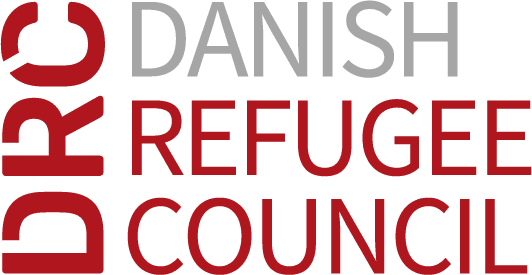

Eastern DR Congo: A deepening crisis, a determined diaspora
Crisis in the Democratic Republic of Congo (DR Congo): A Humanitarian Emergency in North and South Kivu
The humanitarian crisis in DR Congo is escalating rapidly, particularly in North and South Kivu, where armed conflict, displacement, and food insecurity are reaching devastating levels.
Over 21 million people across the country were already in need of aid before the latest surge in violence (OCHA, 2024). In the east, fighting between non-state armed groups, government forces, and M23 has displaced more than 1.15 million people since January 2025 alone, tearing families apart and pushing communities into deeper vulnerability.
In and around Goma, access routes are cut off, camps have been destroyed, and displaced families are once again on the move. Civilians face summary executions, sexual violence, and severe shortages of food and aid. Over 2.7 million people in North Kivu, South Kivu, and Ituri are now severely food insecure (WFP, 2024), while humanitarian warehouses have been looted, crippling the emergency response.
A Lifeline from Abroad: The Role of the Congolese Diaspora
Amid this urgent crisis, the Congolese diaspora is stepping in. Representing around 3 million people globally — with strong communities in France, Belgium, Uganda, the U.S., and Canada — the diaspora plays a crucial role in mobilizing resources, raising awareness, and advocating for action.
In 2023, remittances to the DRC totaled $3.3 billion, nearly 5% of the country’s GDP (World Bank, 2024). These financial flows help families survive amid collapsing local systems. But diaspora support goes beyond remittances: DEMAC’s recent mapping shows that diaspora organizations are also engaged in humanitarian relief, advocacy campaigns, and fundraising for local actors.
However, lack of coordination and visibility are limiting their full potential. Local NGOs in North and South Kivu have expressed a strong interest in collaborating with diaspora actors — particularly on advocacy and fundraising — but awareness and connection remain limited.


DEMAC’s Response
At DEMAC, we’re working to strengthen the impact of the Congolese diaspora by:
-
Mapping diaspora-led humanitarian initiatives
-
Connecting diaspora actors with local NGOs and affected communities
-
Promoting coordination and capacity building to support a more unified response
DEMAC is working to enhance the role of the Congolese diaspora in humanitarian action through coordination, research, and capacity support. We are mapping diaspora organizations active in response efforts—particularly those based in France, Belgium, Uganda, Canada, and the U.S. - to better understand their priorities and connect them with trusted local partners on the ground.
As many diaspora initiatives remain uncoordinated and under-recognized, DEMAC facilitates dialogue between diaspora groups and local NGOs to foster collaboration, build trust, and ensure aid aligns with actual needs. At the same time, we support diaspora advocacy efforts by offering data, visibility, and opportunities to engage with the wider humanitarian system.
Through this work, DEMAC is helping to bridge the gap between diaspora-led initiatives and formal response structures, recognizing the diaspora not only as a source of remittances but as a vital actor in crisis response, recovery, and long-term resilience.
Diasporas' Areas of Intervention

Health

Food Security

Emergency Shelter

Education
Resources for diaspora organizations
Stories and Insights about Diaspora Humanitarian Response in DR Congo

DEMAC awarded new grant to boost Congolese diaspora-led humanitarian aid in DR Congo
DEMAC has been awarded an activation fund by the H2H Network to bolster diaspora-led humanitarian efforts in the DR Congo and showcase their collaboration with local actors and communities.

DEMAC reçoit une nouvelle subvention pour renforcer l’aide humanitaire menée par les diasporas en RDC
DEMAC s’est vu attribuer un fonds d’activation par le H2H Network pour soutenir les efforts humanitaires de la diaspora en République démocratique du Congo (RDC).

Diaspora Humanitarian Training Course
Are you new in the humanitarian sector or do you want to improve your humanitarian knowledge in an easy and accessible way? And are you engaged with a diaspora organization? Then this course is just for you! DEMAC has designed this course in cooperation with the Humanitarian Leadership Academy for diaspora responders as well as project managers, managers, volunteers, local responders and anyone wanting entry level insight into the humanitarian sector. Find it in on KAYA Connect How will you benefit from the training? This course has been made in response to frustrations, questions and development assistance requests from diaspora organizations and their local partners. The training will provide you with Simple breakdown of the humanitarian principles Responses to the challenges diaspora face following humanitarian principles Increased knowledge in advocacy tools Steps to contribute to policy development What donors are looking for when funding projects Information for effective fundraising Recording the work you do to become a tool for partnerships and funding Monitoring and evaluation skills that apply to your project It will therefore cover all relevant areas of humanitarian response, such as The Humanitarian Principles, Needs Assessments, Safety & Security, Accountability & Transparency, Organizational Development, Advocacy and Policy, Project Development, Bid Writing, Reporting, Monitoring and Evaluation, Risk Management and Corruption. How long does the training take? The course is made up of three modules which will take 125 minutes in total (extra time may be taken to complete activities in a supporting workbook). What does it cost? Good news: This course is free and you even will be able to download a certificate once you have completed all modules. In which language is the course available? In English and Arabic Photo Credit: Annie Spratt on unsplash.com




